What Does Psh Mean in Text? Exploring the Meaning and Usage
Curious about the meaning of “psh” in text conversations? Look no further! In this article, we will explore the intriguing world of abbreviations and expressions. So, what does psh mean in text? We will delve into its usage, origins, and evolution, shedding light on the different interpretations and contexts. Join us on this linguistic journey as we uncover the significance of “psh” in modern communication styles. Learn more at Veneziabeachv.vn.
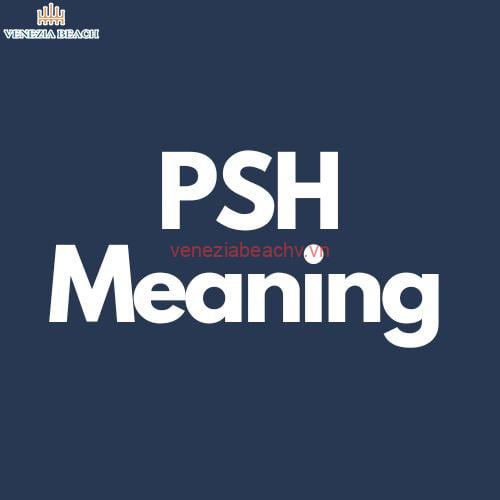
| Key Takeaways |
|---|
| Understand the meaning and origins of “psh” in text conversations |
| Explore various interpretations and contexts for using “psh” |
| Learn about similar expressions and their meanings |
| Gain insight into how “psh” reflects modern communication styles |
I. Understanding the meaning of ‘psh’ in text
Curious about the meaning of “psh” in text conversations? Look no further! In this article, we will explore the intriguing world of abbreviations and expressions.
The Usage of “psh” in Texting
“Psh” is a popular expression used in text conversations, typically to convey a sense of dismissal or disbelief. It can be seen as a way to express a lack of interest or disagreement with something that has been said. This abbreviation is often used to mimic the sound of someone blowing air out of their mouth in a dismissive or contemptuous manner.
For example, if someone sends a text saying, “I think I’m the best singer in the world,” a typical response might be, “Psh, yeah right!” The use of “psh” in this context conveys the sender’s skepticism or amusement at the claim.
This expression is often used informally among friends or in casual conversations where sarcasm or playfulness is prevalent. It helps to add a tone or emotion to the text, making it more expressive and engaging.
Examples of “psh” Usage
Here are a few examples of how “psh” can be used in different contexts:
- “I just won the lottery! Psh, yeah right!”
- “Did you see that new movie? Psh, it was terrible!”
- “I can run a marathon in under two hours. Psh, I doubt it!”
Origins and Evolution of “psh”
The exact origins of “psh” are unclear, but it is believed to have originated from the imitation of a sound made with the mouth. This sound is often associated with dismissing or brushing off something. Over time, it has been widely adopted as an Internet slang expression and has become a popular abbreviation in text conversations.
The usage of “psh” has evolved with the rise of online communication platforms. It is now commonly used in texting, social media, and online forums to convey a sense of attitude or nonchalance.
The Influence of Pop Culture
Pop culture, including movies, music, and TV shows, has played a role in popularizing the use of “psh” as well. Characters with dismissive attitudes or sarcastic personalities often use this expression, further contributing to its adoption in everyday conversations.
The Internet and social media platforms have also played a significant role in spreading and popularizing expressions like “psh.” Memes, viral videos, and trends have all contributed to the evolution and integration of this expression into modern communication styles.
Interpretations of “psh” in Different Contexts
While “psh” is commonly used to convey dismissal or disbelief, its meaning can vary depending on the context. Here are a few interpretations of “psh” based on different scenarios:
- Expressing skepticism: In a text conversation where someone makes an unlikely or exaggerated claim, “psh” can be used to express doubt or disbelief.
- Showing indifference: “Psh” can be used to indicate a lack of interest or to brush off a statement that is perceived as unimportant or trivial.
- Conveying amusement: Sometimes, “psh” is used playfully to show amusement or sarcasm in response to a humorous or absurd situation.
It’s important to note that the interpretation of “psh” may also depend on the relationship between the individuals involved in the conversation. Familiarity and shared knowledge can influence how “psh” is understood and received.
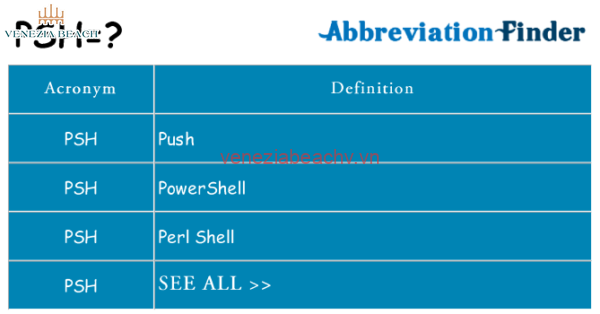
II. Origins and Popular Usage of ‘Psh’
Have you ever wondered where the expression “psh” in text conversations originated? While there is no definitive answer, it is believed to have evolved from the sound people make when they want to dismiss something or express disbelief. The sound “psh” is similar to the sound made when exhaling forcefully through pursed lips, creating a dismissive or nonchalant effect.
In popular usage, “psh” is often used as a response to convey sarcasm, skepticism, or an indifferent attitude. It can also be employed to downplay or disregard someone else’s statement or opinion. For example, if someone says, “I just aced my exam,” another person might respond with a casual “psh,” implying that they don’t find it impressive or believe it to be true.
The versatility of “psh” lies in its ability to convey various shades of meaning depending on the context and tone of the conversation. It can indicate mild annoyance, disbelief, or even amusement at something trivial. As with many forms of communication, the effectiveness of using “psh” relies heavily on understanding the nuances and subtleties of conversation.
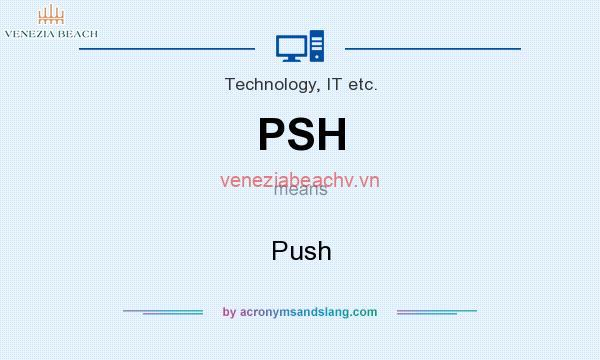
III. Different Interpretations of ‘Psh’ in Text
When it comes to the meaning of “psh” in text conversations, interpretations may vary depending on the context and the individuals involved in the conversation. Here are some common interpretations:
1. Disbelief or Disapproval
One interpretation of “psh” is that it conveys disbelief or disapproval. Use of this expression often indicates that the sender finds something unconvincing, unrealistic, or simply not worth their attention. For example, if someone shares an outlandish claim or an exaggeration, responding with “psh” suggests skepticism or a dismissive attitude.
In this context, “psh” can be seen as a shorter version of the sound people make when they want to express their disbelief or show their disapproval, similar to a soft scoff or a tongue-clicking sound.
2. Nonchalant or Noncommittal Response
Another interpretation of “psh” is that it represents a nonchalant or noncommittal response. In this sense, it can be used to downplay the importance or significance of something. It conveys a sense of indifference or lack of interest.
For example, if someone suggests a plan or idea, responding with “psh” might indicate a lack of enthusiasm or a casual response. It can be seen as a way to dismiss or downplay the suggestion without explicitly disagreeing or rejecting it.
3. Exasperation or Irritation
In certain contexts, “psh” can also convey exasperation or irritation. When someone feels frustrated or annoyed, they may use “psh” to express their impatience or dissatisfaction with a particular situation or statement.
For instance, if someone repeatedly asks for something or makes unreasonable demands, responding with “psh” could indicate annoyance or frustration. It serves as a way to express irritation without resorting to more explicit or confrontational language.
Overall, the meaning of “psh” in text conversations can vary depending on the context, tone, and relationship between the individuals involved. It’s essential to consider these factors when interpreting the intent behind someone’s use of “psh.”
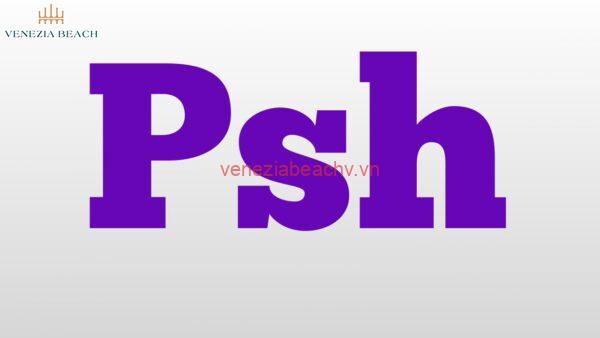
IV. Other Common Abbreviations in Text Conversations
When it comes to texting, abbreviations play a significant role in conveying messages quickly and efficiently. Alongside “psh,” there are several other commonly used abbreviations that you may come across in text conversations. Let’s explore a few of them:
LOL – Laugh Out Loud
“LOL” is one abbreviation that has become ingrained in our digital communication. It stands for “Laugh Out Loud” and is often used to indicate amusement or laughter in response to something humorous. Whether it’s a funny joke or a witty remark, “LOL” expresses a lighthearted reaction.
OMG – Oh My God
Used to express surprise, amazement, or disbelief, “OMG” has become a staple in text conversations. It stands for “Oh My God” and is typically employed when something unexpected or shocking happens. People often use this abbreviation to convey a strong emotional response in a concise manner.
BRB – Be Right Back
“BRB” is an abbreviation commonly used when someone needs to momentarily step away from the conversation. It stands for “Be Right Back” and indicates that the person will return shortly. Whether they need to attend to something urgent or simply take a quick break, “BRB” lets others know they will be back soon.
TBT – Throwback Thursday
“TBT” is often used on social media platforms, particularly on Thursdays. It stands for “Throwback Thursday” and is a way to share nostalgic photos or memories from the past. This abbreviation allows people to reminisce and reflect on fond moments while engaging with others in a lighthearted way.
FTW – For The Win
“FTW” is an abbreviation that originated from gaming culture but has now found its place in everyday conversations. It stands for “For The Win” and is used to express enthusiasm or support for something. Whether it’s cheering for your favorite team or endorsing an idea, “FTW” conveys a positive sentiment.
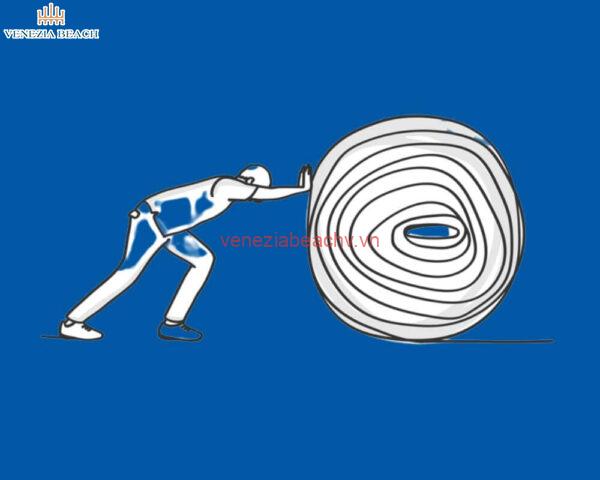
V. Conclusion
In conclusion, “psh” is a versatile expression used in text conversations to convey various meanings. Its origins can be traced back to the noise made when someone dismisses or downplays something. Over time, “psh” has evolved and gained different interpretations based on context and tone. Whether it’s used as a response of disbelief, annoyance, or nonchalance, understanding the meaning behind “psh” can help improve communication comprehension in digital interactions.